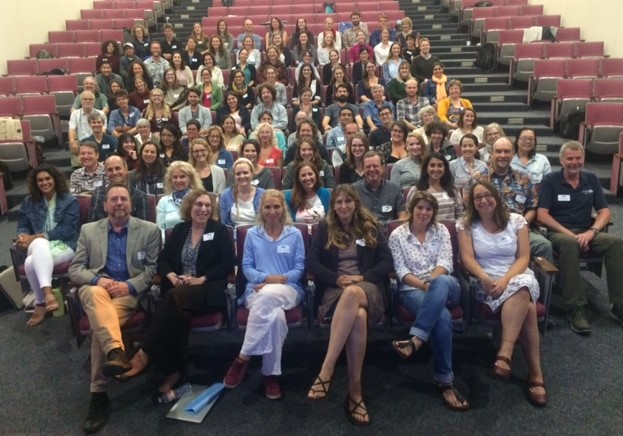The Deep-Ocean Stewardship Initiative is a collective of mostly marine scientists whose goal is to use science, technology, policy, law and economics to advise on ecosystem-based management of resource use in the deep ocean as well as strategies to maintain the integrity of deep-ocean ecosystems within and beyond national jurisdiction. DOSI met on Sunday, September 9, ahead of the Deep-Sea Biology Symposium, to discuss their goals for the next 3 years. These goals include integrating their mission with the priorities of the UN Decade of the Ocean and, for the DOSI Minerals Working Group, providing comments to the ISA draft exploitation regulations.
DOSI delegates acknowledged that, with a 2020 deadline for mining regulations looming, there was an “urgent need” to provide expert comments from the research community on the draft regulations, due by the end of September. They also expressed a need for more representation at the ISA General Assembly. DOSI is a registered observer that has sent a few delegates to the Assembly, but the organizers requested greater participation from its membership, including sending more representatives and filing more interventions during the Assembly.
Currently, DOSI is collecting and collating comments on the draft ISA mining regulations and asks that members submit their contributions a week before the September 30 deadline.
As the session moved on to the big picture questions about the deep sea and the Decade of the Ocean, frustrations ran high. The UN Decade of Ocean Science for Sustainable Development will be implemented to support efforts to reverse the cycle of decline in ocean health and gather ocean stakeholders worldwide behind a common framework that will ensure ocean science can fully support countries in creating improved conditions for sustainable development of the Ocean.
The primary goal for DOSI was to identify the big questions in deep-sea science for the next decade and how they can contribute to the UN Sustainable Development Goals. As the list grew, many participants felt that we were still asking the same questions we asked 20 years ago and questioned what it might mean for the Ocean Decade that progress in the deep sea appears to have stalled.
Many rightfully pointed out that, though the deep sea is the largest ecosystem on the planet, the actual research community is very small, and it is not surprising that the pace of progress has been slow and steady. It points towards a greater need for prioritizing the deep sea within the Ocean Decade framework and that, with the right funding and the current pace of technological advancement, the UN Decade of the Ocean is the right opportunity to more comprehensively tackle some of the big questions in deep-sea ecology.
Though there was much frustration over the specifics of what a new decade of ocean research would look like, it was clear to everyone involved in the Minerals Working Group that mining on the high seas will be a big part of the Decade of Ocean Science for Sustainable Development.
